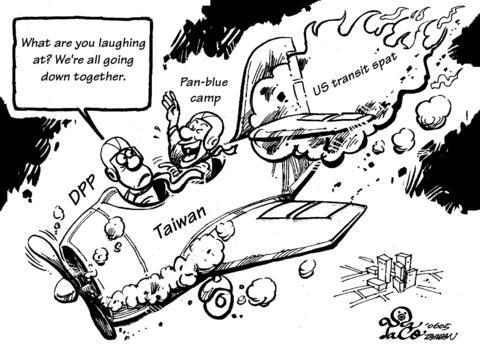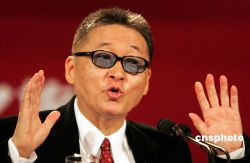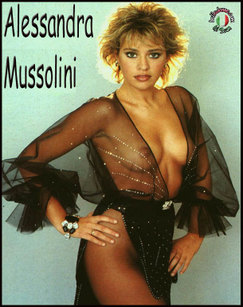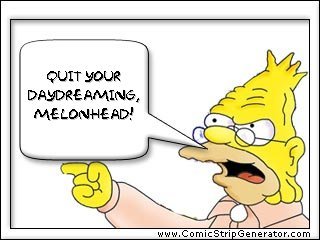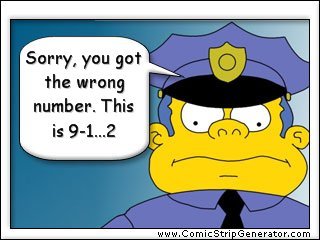For myself, the worst thing about the indictment of President Chen’s wife on corruption charges on Friday is the sinking feeling that his whole party is going down with him – delivering Taiwan into the hands of Ma "Gaius Baltar" Ying-jeou.*
Sure hope the half-million bucks was worth it.
OK, maybe that’s out of line. After all, Chen’s wife, Wu Shu-chen, has been indicted, not convicted. Maybe the president can explain everything to everyone’s satisfaction within the next few days, saving his wife from being referred to his party’s internal ethics committee.
Maybe too, it’s all just a "big misunderstanding", and Chen won’t be indicted when he leaves office.
Maybe. I can tell you though, it’s going to be pretty tough to rustle up support for a first lady who’s been "indicted, not convicted." It’s even worse if the public sees the prosecutor as a straight shooter who’s already demonstrated his neutrality by exonerating the First Lady on a previous corruption charge.
(Yet one more bad sign is that the KMT has vowed to oust the president, legally. You know you’re in bad shape when the KMT feels confident enough to bring you down using nothing but THE LAW, rather than with violent revolution or American intervention.)
Lots of commenters at the The View from Taiwan are saying they don’t see how Chen can continue in office, and I’m inclined to agee. Therefore, it’s probably time to start thinking about what an Annette Lu presidency would look like. Those who think that squeaky-clean Lu is somehow going to pass muster with the KMT and its allies had better think again:
[People First Party Chairman James] Soong said that it’s also imperative for [President Chen’s] ruling Democratic Progressive Party and opposition parties to hold a summit to discuss the rights and obligations an acting president should have. [Emphasis added]
In other words, the PFP and KMT won’t see Annette Lu as being PRESIDENT – she’ll instead be some kind of ACTING president. As such, they insist her "rights and obligations" won’t be constitutionally-mandated like a REAL president’s, but instead be open to inter-party negotiation and future interpretation. For the last six years of the Chen administration, the KMT and PFP have lambasted Chen for violating the "spirit" of the Republic of China constitution; at every turn, a Lu administration will be excoriated for violating an ad hoc "Agreement on the Powers of Acting Presidents".
Ms. Lu, of course, can avoid all that by knowing her place. A place which the KMT will be all-too happy to designate for her.
* Some of Chen’s enemies see no downside, regarding this as an opportunity to boogie down. For Taiwan’s China Post however, the worst aspect of the First Lady’s indictment is that propriety demands they now shed crocodile tears rather than gloat:
With a very heavy heart, we now call upon President Chen to step down. We haven’t done that before because he was allegedly involved in the misuse of the fund under his control for the conduct of "affairs of state."
Last things first. The China Post has on NUMEROUS occasions said that Chen should resign, so they have indeed "done that before". And their "very heavy heart"? Well, they spent a year-and-a-half alleging that President Chen assumed office by faking an assassination attempt on his own life in order to win sympathy votes, so I don’t imagine they’re really all THAT cracked-up about it.
For six years now, the KMT and the China Post have accused Chen of a lot of things, alternatively demanding his recall, his impeachment, or his resignation. Heavy hearts at this moment belong to those who voted for Chen or believed he was innocent, based upon the sheer number of times his critics cried wolf – with no wolf ever revealing its lupine face.
UPDATE: One person arguing in Chen’s defense:
Among those who were apparently willing to stick up for the president was DPP Legislator Lin Kuo-ching who said that he still does not believe a president who was willing to slash his salary in half would become embroiled in corruption for the sum of NT$15 million [$450,000]. [Emphasis added]
I’d forgotten that. It’s certainly inconsistent with the picture of a corrupt Chen that the KMT has painted.
UPDATE #2: On the subject of V.P. Annette Lu possibly succeeding President Chen Shui-bian:
American Institute in Taiwan (AIT) Director Stephen Young is believed to have avoided a meeting with [Annette Lu] during his round of visits with Taiwanese leaders after his recent briefing round in Washington.
I’m sure the American government disapproves of Ms. Lu’s committment to Taiwanese independence, but if it’s true that they’ve been snubbing her, then that ought to stop. It’s quite possible that Lu may wind up being the next Taiwanese president, for Pete’s sake.
UPDATE #3: The KMT plans another recall motion on Monday, only three days after the First Lady’s indictment, and a single day after Chen was to give a speech in his defense. I think the president’s party is still a bit dazed right now. They’ll reflexively defend him, and he’ll survive.
In a couple of weeks’ time, reality will set in, polling numbers will be known, and some of them might very well be willing to vote the other way.
UPDATE #4: Did I say the PUBLIC regards the prosecutor as a straight-shooter? Heck, even the Taipei Times, one of President Chen’s staunchest defenders, writes glowingly of him.
UPDATE #5: It wouldn’t be another day in Taiwan if the KMT didn’t find yet another excuse to continue blocking the special arms budget:
Observers said the KMT and PFP may continue [to] boycott the arms budget if the president refuses to step down.
